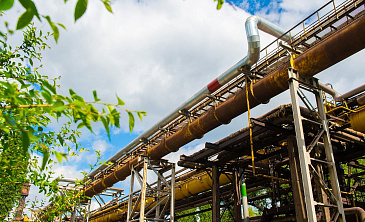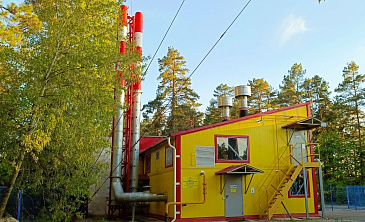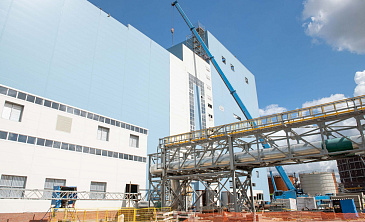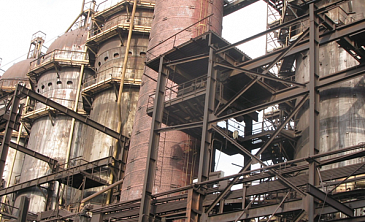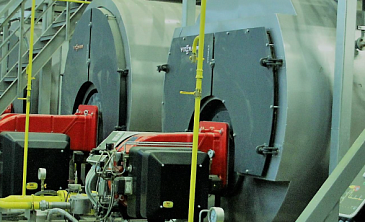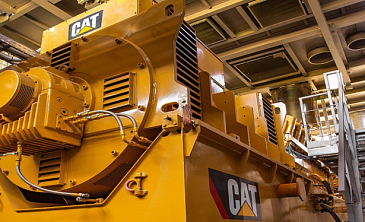- Home
- Sustainable development
- Energy efficiency
Energy efficiency
Energy-saving technologies in production processes
NLMK Group seeks to manufacture products of the required quality at the lowest cost. To this end, it pursues operational efficiency programmes, which include the introduction of energy efficiency technologies in production. One of the Company’s priorities in its commitment to decrease energy expenses in production cost and to reduce its climate footprint is to improve the energy efficiency of production as part of the Strategic Development Cycles.
Results
Key events in 2024:
- The medium-term programme for reliability improvement of core equipment continues at Altai Koks’ Co-Generation Plant. An overhaul was completed at Boiler No. 2 and Turbine Generator No.1.
- New Distribution Sub-Station No. 3, rated at 220 kV, was put into operation at NLMK Lipetsk, to serve the Recovery Co-Generation Plant power output; construction of two gasholder tanks for BOF gas was completed, installation of RCGP-2 auxiliary equipment continues.
- The Company is consistently reducing its fuel consumption and drives technically feasible specific rates of fuel consumption for each transportation category. In 2024, NLMK reduced diesel fuel consumption by 3.9 million litres, following a 4.4% decrease in cargo operations at Stoilensky (motor vehicles and rail transport). Deployment of high-efficiency locomotives, timely vehicle repairs, maintenance of fuel systems, engine cleaning routines using an H2 cleaner, reduction of idling and mandatory engine shut-off during parking for over five minutes have enabled a fuel consumption reduction at NLMK Lipetsk by 79,000 litres in 2024. The efforts to cut motor fuel consumption will continue in 2025 and beyond, focusing on sourcing and testing alternative-fuel vehicles, driver ranking system, eco-friendly driving techniques , and usage of fuel additives.
- The Group completed its targeted lighting replacement programme. In 2024, approximately 5,000 old lighting fixtures were replaced with high-efficiency LEDs.
- In 2024, the total gains from implementing the energy optimization activities within the Power & Utilities Function of the Group amounted to approximately RUB 480 million.
Energy performance of the main production site in Lipetsk:
- 5.02 Gcal/t – purchased energy consumed to produce 1 tonne of steel in 2024.
- 61% – captive generation of electric power.
- NLMK Group has completed dozens of large-scale investment projects to advance its energy efficiency. Since 2001, NLMK’s actual specific energy intensity decreased by 1/4. Further development of the energy facilities will enable the Company to nearly reach the industry level of best available techniques (BATs), considering the climate zone where it operates..
- Captive power generation from secondary gases for internal consumption at NLMK Lipetsk is over 80%. 100% of energy generation at Altai Koks uses captive secondary energy resources (metallurgical gases). In addition to reduced energy and production costs, such initiatives help the Company to minimize its environmental footprint.
- Revamp of air stoves of BF-4 continues. The project aims, among other things, to improve energy efficiency and reduce CO emissions. The upgrades are phased through to 2026.
- In 2024, a new high-efficiency gas-powered modular boiler was commissioned at the Parus facility of the Novolipetsk Medical Centre Association, which replaced the fuel oil boiler. NLMK Group continues to implement projects to deploy green energy facilities at the Lipetsk site, such as the construction of a power plant for secondary fuel gas recovery with a system to collect and store BOF gas. The commissioning of the plant with installed capacity of 300 MW will boost the site’s electric power self-sufficiency to 94%. Previously, NLMK Lipetsk commissioned a new Recovery Co-Generation Plant rated at 150 MW and two top-pressure recovery turbine units, which use the excess pressure of blast-furnace gas for energy generation.
- Achievement of the minimum technically feasible power consumption in production,/li>
- Optimizing the process charts for production of energy resources,,
- Driving efficiency of various types of equipment (energy, compressors, pumps, lighting),
- Deployment of digital solutions in energy,
- Implementing investment projects for infrastructure development, technical upgrades/construction in core production with improved energy performance.
The company is working on a portfolio of technology development projects in energy. The focus areas in 2025 will be the development of projects for industrial energy storage technologies and analysis of alternative energy technologies.



